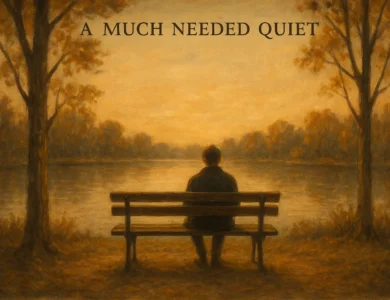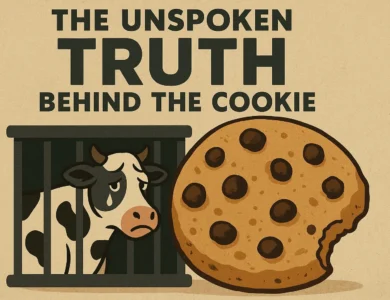
My husband and I had a huge fight just an hour before he was set to leave for three days. (Still not sure why I wasn’t invited.) The argument escalated, and then he did the unthinkable—he left me and the kids with just $20, saying, “You’ll manage!” and drove off. In our family, I handle the kids and home, while he earns the money, so he knew I had nothing. SPOILER: He’ll regret this big time. Three days later, when he got home, tears welled up in his eyes as he entered our home and saw…
It all started with a simple misunderstanding that spiraled into something bigger. It was meant to be a peaceful weekend for him to catch up with some friends, relax, and unwind. But the moment he brought up leaving without really discussing it, I felt a pang of resentment. I had been running the house alone for weeks, managing the kids, the meals, and everything else. And when I asked him why he hadn’t even mentioned it to me, he got defensive. The frustration in his eyes mirrored my own, and suddenly, it felt like we weren’t even speaking the same language.
“You think it’s easy for me?” he had snapped. “I’m working all the time. I deserve this break.”
And before I could explain that I, too, needed a break, his voice grew louder, cutting through the air. The words that followed felt like a slap across the face, and before I knew it, I had said something that I regretted immediately. “You’re always running away when things get tough!”
Those words were out before I could stop them. They weren’t the truth, not really, but in that moment, it felt like the only way to defend myself. I wanted him to understand how much I was carrying, how much I had been giving for years. But all I got in response was silence, followed by a firm statement.
“I’m leaving. I’ll be back in three days,” he said.
I watched as he grabbed his bag, walked out the door, and drove off into the distance, leaving me standing in the middle of the house with a sinking feeling in my stomach. And there it was, the silence that followed. The kind of silence that takes over when you’re left alone with your thoughts and the weight of everything you’ve never said.
I looked around at the empty house, my eyes catching the toys scattered across the floor, the laundry piled up in the corner, and the clock ticking louder with every passing second. The kids were in their rooms, oblivious to the tension that had unfolded in the living room just moments earlier.
As the minutes turned into hours, I felt the pressure start to build. I could barely even focus on the tasks at hand. The fact that he had left us with only twenty dollars—twenty dollars to last three days—felt like the cruelest twist of fate. But there was no time to dwell on it. I had to figure out a way to make it work.
I quickly ran to the fridge and found a few scraps: some eggs, a little leftover chicken, and a few pieces of bread. Dinner was a simple affair—scrambled eggs with chicken and toast. Nothing fancy. But we made it work. The kids didn’t complain. They never did, and I admired them for that. I knew they were confused by the argument, but I kept my smile as best I could.
The first night alone was the hardest. The house felt emptier than usual, like his absence had left a space that I couldn’t fill. The kids fell asleep quickly, their faces relaxed in peaceful slumber, unaware of the growing storm within me. I sat in the living room, trying to distract myself from my thoughts. But they kept coming, relentlessly. The hurt, the anger, and the overwhelming sense of unfairness.
He knew what I was dealing with. He knew how much I sacrificed. But for some reason, he didn’t seem to see it. I was beginning to question everything. Did he even care about how much I was carrying? Was I being unreasonable, or was he truly blind to it all?
The second day was equally tough. I went out and bought a few essentials with the remaining $20. I managed to make the most of it, but the limited budget was a constant reminder of how little I had to work with. I called a few friends, hoping for a little distraction. One of them invited me to a local café for lunch, and it was a much-needed break. We talked about everything and nothing, and for a few hours, I forgot about the fight and the pressure.
But even as I laughed with my friend, I couldn’t shake the feeling of abandonment. It wasn’t just the money or the lack of resources—it was the deeper sense of being left behind. I realized that my life had become a routine of being a mother, a homemaker, and a partner, but never really being seen as anything more than those roles. Was I losing myself in the process? Was this what I had become?
When I returned home, I decided to tackle the housework head-on. I cleaned, organized, and prepared for the weekend ahead. The kids were happy, but I could feel their curiosity brewing. They could sense the change, the tension in the air. But I refused to let them see it. They deserved better than that.
The third day was a turning point. I woke up early, as usual, and made breakfast for the kids. As we ate together, I made a decision. I wasn’t going to wait for him to come home and fix everything. I didn’t need him to come back and apologize for his actions. It was clear that I had to stand on my own two feet, and I wasn’t going to let this situation break me.
That afternoon, I took a long walk in the park. I spent time reflecting on everything—the fight, his words, and my own feelings. The more I thought about it, the more I realized something important: It wasn’t just about what he had done. It was about me. It was about my own sense of worth and the fact that I had been waiting for him to see me. But maybe I needed to start seeing myself first.
By the time he came home, I had a new sense of clarity. I wasn’t going to beg him for an apology or expect him to fix things. I was going to move forward on my own terms, for myself and for the kids.
When he walked in, he looked like he hadn’t slept at all. His eyes were bloodshot, and his face showed the exhaustion of a man who had been carrying the weight of his actions. He looked at me, then at the kids, and his expression faltered. There was something in the air—a change that he couldn’t ignore.
And then it happened. Tears welled up in his eyes as he looked at the house. Everything was in its place, clean and organized. The kids were happy, laughing, and playing. But it wasn’t just the house that had changed. It was me. I wasn’t the woman he had left behind in anger. I wasn’t the wife who needed him to feel whole. I had found my own strength.
“I’m sorry,” he whispered, his voice breaking.
I stood there for a moment, my heart pounding. The silence stretched out before me, and in that moment, I understood. He hadn’t left because he didn’t care. He had left because he was lost—lost in his own struggles, too focused on his own needs to see the bigger picture. He didn’t know how to ask for help, and I had been so wrapped up in my own frustration that I couldn’t see it either.
“I know,” I said softly, my voice steady. “But we’ll be okay.”
He reached out and pulled me into a hug. And for the first time in a long time, I felt like everything would truly be okay. We had both learned something important over the past three days. Sometimes, you have to break down to realize what you’re really made of.
The next few weeks weren’t perfect. There were still moments of tension, moments when we would both slip into old habits. But there was a new understanding between us. We were in this together—not just as a family, but as individuals who needed to see and appreciate each other.
He never left us again. And over time, we built something stronger—a partnership, not defined by roles, but by mutual respect, love, and understanding.
In the end, I learned that sometimes, we have to go through the hardest of moments to realize just how strong we truly are. And when we stop expecting others to fix things for us, we find the power to fix them ourselves.
If you’ve ever felt like you’re carrying the weight of the world on your shoulders, just remember: sometimes, you have to walk alone for a while to realize that you’re not as alone as you think. Strength comes from within.
If this story resonated with you, share it with someone who might need to hear it. Like and share, because sometimes, a little support is all it takes to turn things around.







